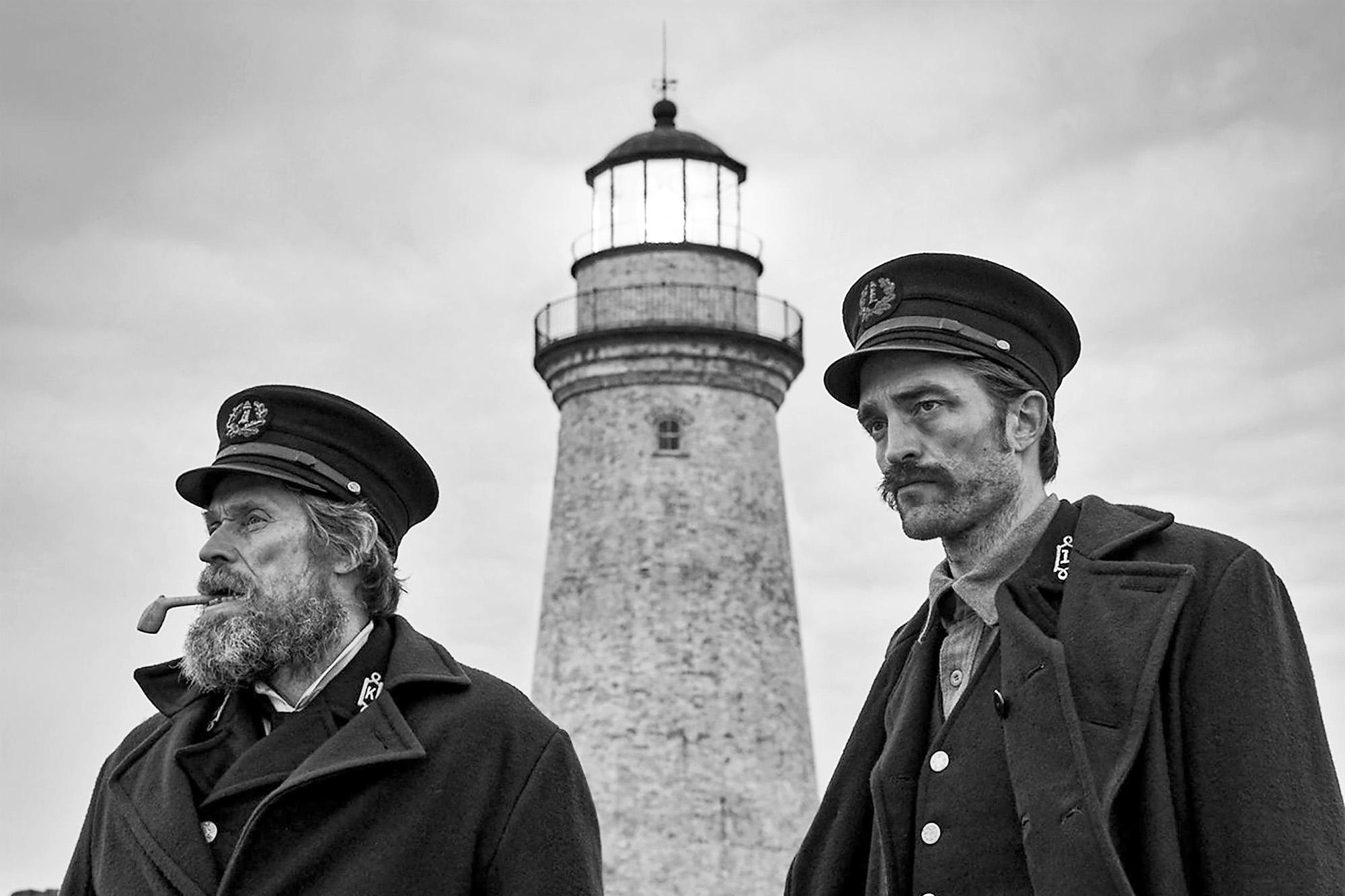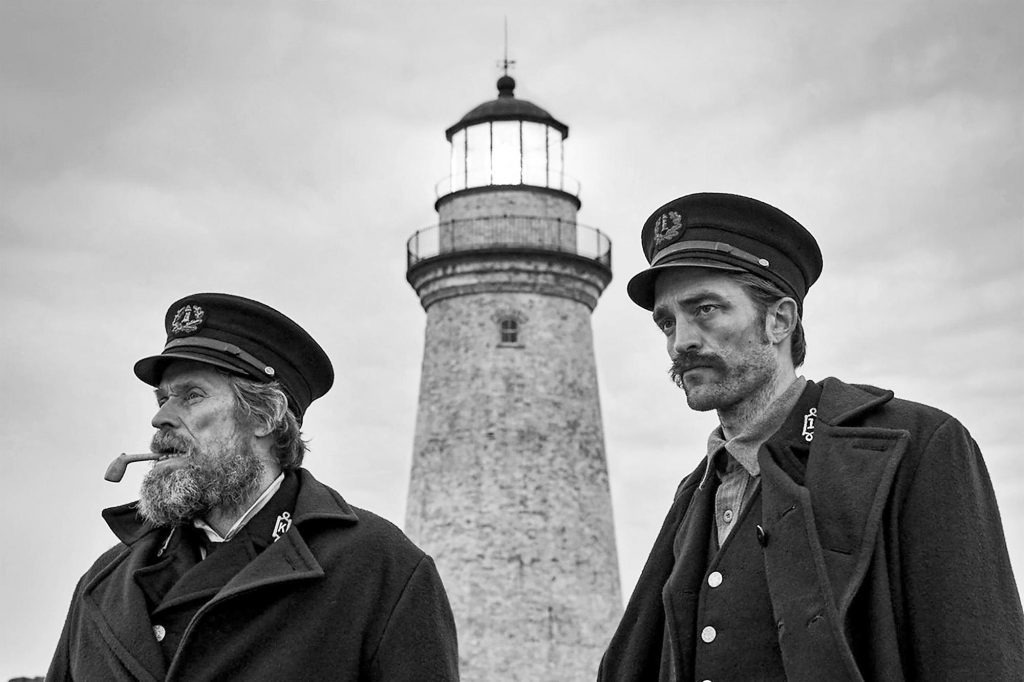“Tis when the workin’ stops that yer twix wind and water.
Doldrum. Doldrum. Eviler than the devil.
Boredom makes men to villians and the water goes quick lad… vanished.”
That’s not a public service announcement reminding us to stay busy and productive in these exceptionally crazy times. It’s a snippet of the dense poetic dialogue from Robert Eggers second feature, The Lighthouse. Delivered chillingly by Thomas Wake (Willem Dafoe). It’s one of the many tense and atmospheric monologues shared between Thomas Wake and Thomas Howard (Robert Pattinson) as they weather through their duties to the mystical lighthouse and never ending storm. Being the only characters, there is no respite from their colloquial chat or their immersive and obscure demise into madness.
Dafoe and Pattinson really make these characters uncomfortable but very enjoyable to watch. Colliding the topsy-turvy exchanges that sway between blackhumour and drunken banter to spiteful contempt and resentment. Dafoe is the quintessential proud mariner. Pattinson is the reluctant deckhand. Both are quarantined in a forsaken purgatory of sorts.
There are many incredible and yet challenging aspects to the film. Not least the cinematography. Black and white 35mm film. In a claustrophobic boxed aspect ratio and composition to keep you permanently unsettled. The landscape and setting is bleak and yet the image is infinitely interesting. Every piece of meticulous costume, set and art design compound the viewing experience. Expect to be tossed back to 19th century New England but for what purpose, you will have to decide for yourself.
What makes this film so enchanting is not the bewildering forces that may dwell in the lantern room but rather the dynamic between the two Thomas’s. The relationship is tempestuous. At times there is comradery that makes the couple endearing. Then by the pass of a comment from the youthal Howard, Wake will unleash a sea dogged rant and pull rank on his subordinate. Any signs of affection boil into bravado including a simmering sexual tension between the two which Young Thomas brilliantly exercises in truly thematic, sea-lore delusions.
It’s not easy to take age-old tropes such as those surrounding sea culture or those tropes surrounding Eggers first feature The Witch and to create something fresh. This is achieved with great historical accuracy and due to extensive research on part of Eggers and his brother and co-writer Max. Most impressively, it’s audible in the old and authentic dialects. The execution is visceral tension and captivating mood that leaves us too feeling inescapably captive on this island with them.
Samueil Foley




